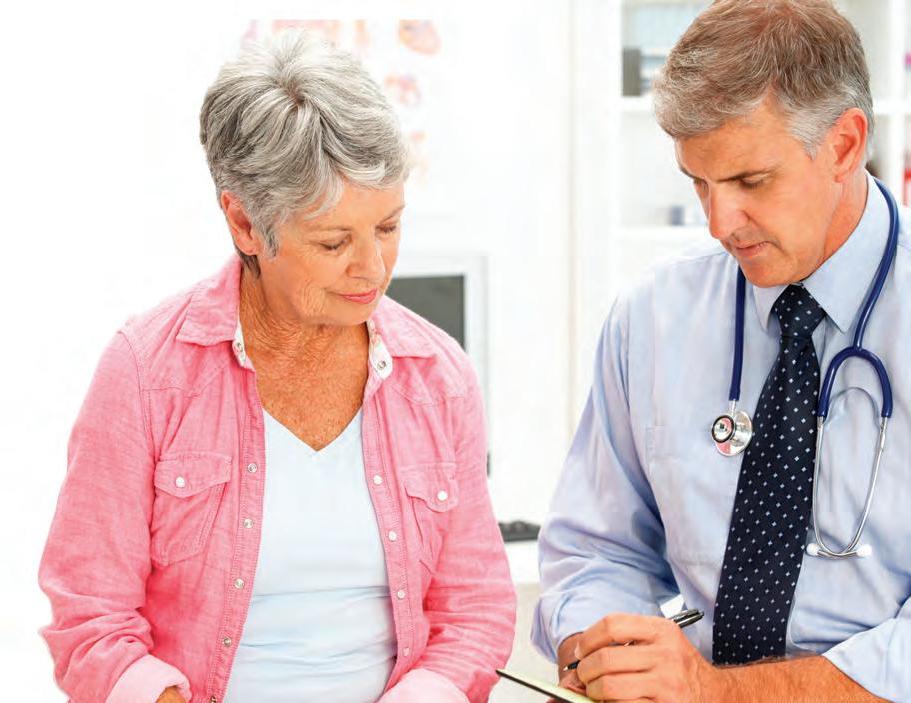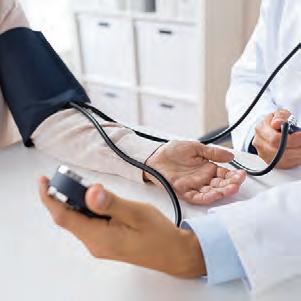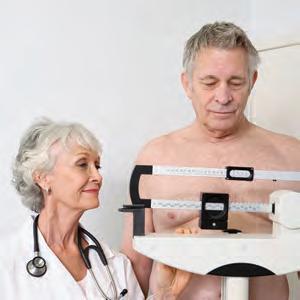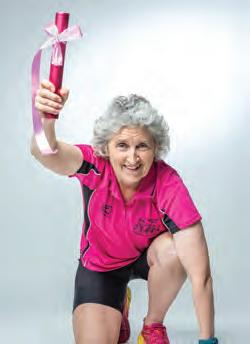
5 minute read
Me dical tests you should have every year
Medical tests

you should have every year
We all get so busy with our daily lives, and unfortunately our health often gets neglected. You make time to get your car serviced regularly, so ensure you make time to get your body serviced too!
Even if you feel healthy, you should see a doctor for regular check-ups. Screening tests help doctors to detect many diseases such as cardiovascular disease, diabetes and some cancers in their early stages.

Is health and wellness a new year’s resolution for 2019? Then get cracking and book in your tests and get the most out of life.
See below a list of tests that are advised as being regularly booked in with your GP: Blo od pressure – It is important to get your blood pressure checked regularly – at least once a year for most adults, and more often if you have high blood pressure. If your blood pressure is on the high side, or you have a personal or family history of high blood pressure, stroke or heart attack, it’s best to have it checked more frequently. Blood tests – Check your cholesterol levels and triglycerides. High levels may indicate an increased risk of heart disease. If you’re over 45, it is recommended that you have these
Looking for a medical practice you can trust?
Open Saturdays and extended hours Online appointment bookings Caring and experienced female and male doctors Qualified r egistered nurses Specialised clinics ie. Advanced Wound Care Skin cancer checks Chronic Disease Management Health assessments Women’s health Men’s health Pathology and allied health services onsite Radiology and chemist close by

Download free App ‘highqualityhealthcare’
New patients welcome Contact one of our practices today!
blood tests every five years. If you are at high risk of cardiovascular disease, it is recommended that you be tested every year or two. W eight check – Being overweight is a significant risk factor for many health conditions, including cardiovascular disease and diabetes. Ask your doctor to check your body mass index (BMI) and waist measurement every two years. Bone density – Advancing age is a significant risk factor for osteoporosis. A bone density test helps to determine the health of your bones. Eye check – Eyesight tends to deteriorate with age. If you already wear prescription glasses or contact lenses, you should have your eyes tested every year. Younger adults who don’t wear prescription glasses or contact lenses should have an eye test every two years. Electrocardiogram (ECG) – This is a non-invasive and painless medical test that detects cardiac (heart) abnormalities by measuring the electrical activity generated by the heart as it contracts. If you are aged over 50 years, your doctor may recommend an ECG test every two to five years, depending on your health and medical history. B owel cancer check – Bowel cancer is a common cancer and, if detected early, has a good recovery rate. A faecal occult blood test (FOBT) is used to screen for bowel cancer. Suitable immunisation – It is recommended that you have a flu vaccination if you: –are over 65 years of age –are pregnant, especially in the last trimester, because your baby will also be protected –have a chronic condition such as severe asthma or diabetes –ar e worried that you are likely to get the flu and it would impact significantly on you.
If you are travelling overseas, please check with your GP if you require any vaccinations etc.

For the ladies Cervical Screening Test – This is an important screening test to pick up signs of irregularities that could lead to cervical cancer if not treated. Cervical cancer is one of the most preventable cancers. As of December 2017, the Pap test has been replaced by the Cervical Screening Test, which detects human papillomavirus (HPV). Breast cancer health checks – If you notice any breast changes, be sure to visit your GP within the next week. Women aged between 50 and 74 years who have no personal or family history of breast cancer are recommended to have a screening mammogram (breast X-ray) every two years.
If you have a personal or family history of breast cancer, your doctor can help you to decide how often you need to be screened.
Keep healthy and get tested! See your doctor for regular medical check-ups to help you stay healthy and to pick up early warning signs of disease or illness.
Article supplied by Mariners Medical www.marinersdoctors.com.au
Toukley Family Practice www.toukleydoctors.com.au
Warnervale GP Super Clinic www.warnervaledoctors.com.au
Resources: Better Health Channel www.betterhealth.vic.gov.au www.healthdirect.gov.au
A day trip to remember... Ride the Ferry and have lunch at the Davo!

Ferry Trip & Lunch Package 2 Course Menu – Main & Dessert Minimum of 25 people ONLY $30 per head Only 2 minutes’ walk from Woy Woy station the M.V Saratoga departs Fisherman’s Wharf Monday to Friday at 10.45am and 12.30pm and on the weekends 9.30am, 10.45am or 12.30pm for a relaxing ride on the beautiful Brisbane Waters. There is an option of a 1 ½ hour COCKATOO ferry cruise departing from 10:15am with return on the regular ferry at 1:15pm or 2:15pm. Inform the Boat Captain and he will ring the club prior to your arrival where the bus will pick you up from Davistown Wharf and bring you to Davistown RSL Club. The bus will then depart the club at either 1.00pm and 2.00pm for your return journey home. Bookings are essential. For more information contact Davistown RSL Club on 4363-0103 and Central Coast Ferries on 0418 63 13 13. Email reception@davistownrsl.com.au
For your next group booking look no further than Davistown RSL with a wide variety of choices.








